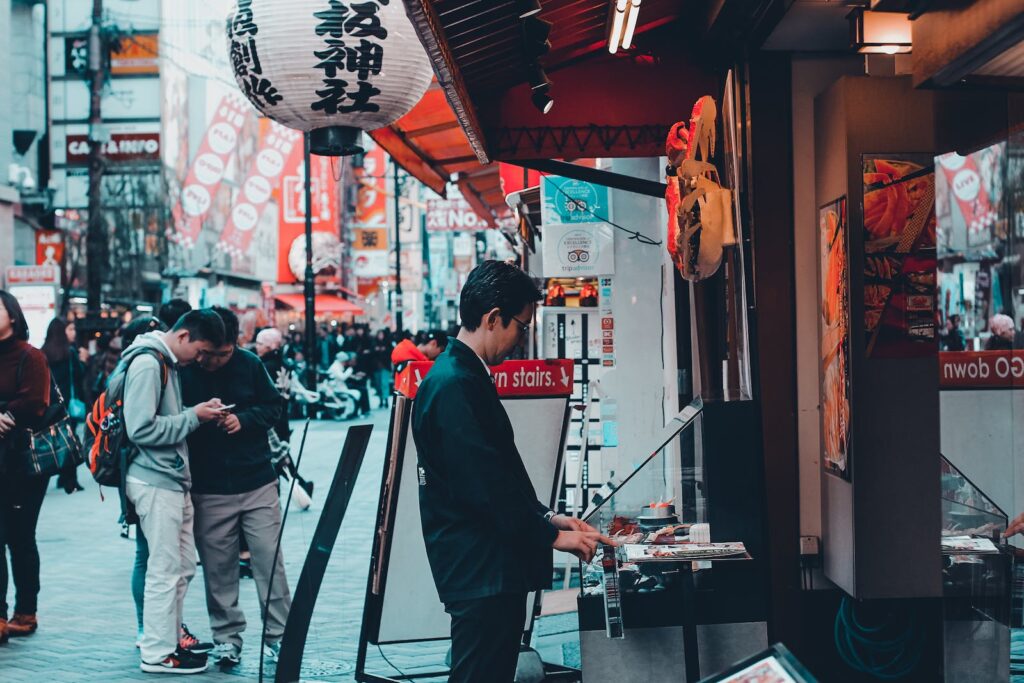1. Respect Japanese culture. Japan has a deep and rich cultural heritage, so be mindful of the local customs and show respect for the people you meet. It would be beneficial to spend some time researching the country’s culture before arriving to make your visit smoother and more enjoyable.
2. Get acquainted with the language. Knowing at least some basic phrases in Japanese can go a long way, allowing you to communicate more effectively with locals and make your stay more comfortable. Make sure to take time to learn and practice basic words, such as greetings, thank-you’s, numbers, etc., before traveling.
3. Dress appropriately. Japanese people are known for their politeness and respect, so make sure to match their level of formality in your wardrobe choices. Clothing such as shorts, t-shirts, and flip-flops may be acceptable in some areas, but it’s still important to check with locals before wearing them.
4. Be conscious of your manners. Table manners, in particular, are taken very seriously in Japan. Make sure to avoid slurping your soup or making too much noise when chewing, as it’s considered rude. Furthermore, remember to say “itadakimasu” before eating and “gochisousama deshita” after meals.
5. Use cash for transactions. Credit cards are growing in popularity, but cash is still Japan’s most widely accepted form of payment. Therefore, make sure to bring enough bills with you when traveling around and always keep small changes handy. This will help you avoid unnecessary confusion or embarrassment in public.
6. Learn the art of bowing. Bowing is a common form of greeting in Japan, and it’s important to understand when and how to bow to show respect properly. A short bow with your hands at your sides is generally appropriate in most situations; however, there are other ways of bowing, depending on the context. Doing some research beforehand is necessary to avoid any awkwardness or misunderstanding.
7. Avoid making direct eye contact. Japanese people are generally more reserved and prefer not to make direct eye contact when talking, which can be interpreted as aggressive or confrontational. Therefore, it’s important to be aware of this custom and look more toward the ground when speaking to someone to show respect.
8. Be mindful of your surroundings. Japan is a densely populated country, so always being mindful of your surroundings is important. Noise levels should be kept low, especially in public areas such as train platforms or parks; avoid loud conversations, shouting, or making too much noise. Furthermore, make sure to keep your hands and feet to yourself when in public spaces.
9. Respect the food culture. Japanese cuisine is widely varied and deliciously diverse; however, it’s important to understand that certain foods are more appropriate than others in different situations. For example, sushi is popular at formal meals, while ramen is more suitable for casual gatherings. It’s important to be mindful of these customs and show respect when eating with locals or in public places.
10. Enjoy the experience. Visiting Japan can be an exciting and eye-opening experience, so make sure to savor the opportunity to explore and appreciate the unique culture. There is so much to see and do, from shopping in Tokyo’s bustling streets to visiting ancient temples and shrines; take your time to enjoy it all!
11. Make sure you are wearing the right shoes. Most of the time, you will be doing a lot of walking to visit nearby attractions; thus, wearing shoes perfect for walking, biking, or trekking will make your Japan adventure comfortable.
12. There is no need to give a tip in Japan. Attempting to tip staff can be offensive as they take pride in their work. Instead, expressing your appreciation with a few kind words and a bow or handshake is polite.
13. Visit Japan during the cherry blossom season. It is one of the most incredible times to visit the country. Remember that it could be the busiest time to be in Japan, but who will not love the cherry blossom season?
14. Buy tickets in advance to popular destinations/activities. This will really save you time in the queue, and some require pre-booking.
15. You can greatly benefit from Google maps and HyperDia when traveling to Japan. Remember to download the HyperDia app, as it will be a great guide to a location in Japan and is available in English. With this application, you can find train information, prices, and average journey times directly.
16. Buy a Pasmo card or a Suica card. Buying a reloadable IC card for train and bus travel time and money.
17. Better to fly to Haneda than to Narita airport. Haneda is geographically closer to Tokyo, which means it will be faster and easier for you to arrive at your hotel.
18. Make use of Google Translate. This will be very helpful in getting your message across quickly. However, train station signs and stop announcements are in English letters in Tokyo. Other restaurants also have their menu listed in English, and hotels and restaurant staff speak in English to help you.
19. Make use of luggage forwarding and luggage storage services. For visitors to Japan, using services such as luggage forwarding and storage can make your travels much more enjoyable. Luggage forwarding allows you to easily transport your bags from one location to another without carrying them around the whole trip. This is especially helpful for long trips or when visiting multiple cities. Additionally, luggage storage offers tourists the convenience of leaving their bags in a safe and secure location while they explore a city. This service can be especially useful when visiting attractions that do not allow large items such as backpacks or suitcases inside.
20. Know where to get cash. Even in Tokyo, finding ATMs accepting foreign cards can be difficult. It is important that your cards are activated for withdrawals in foreign countries.

